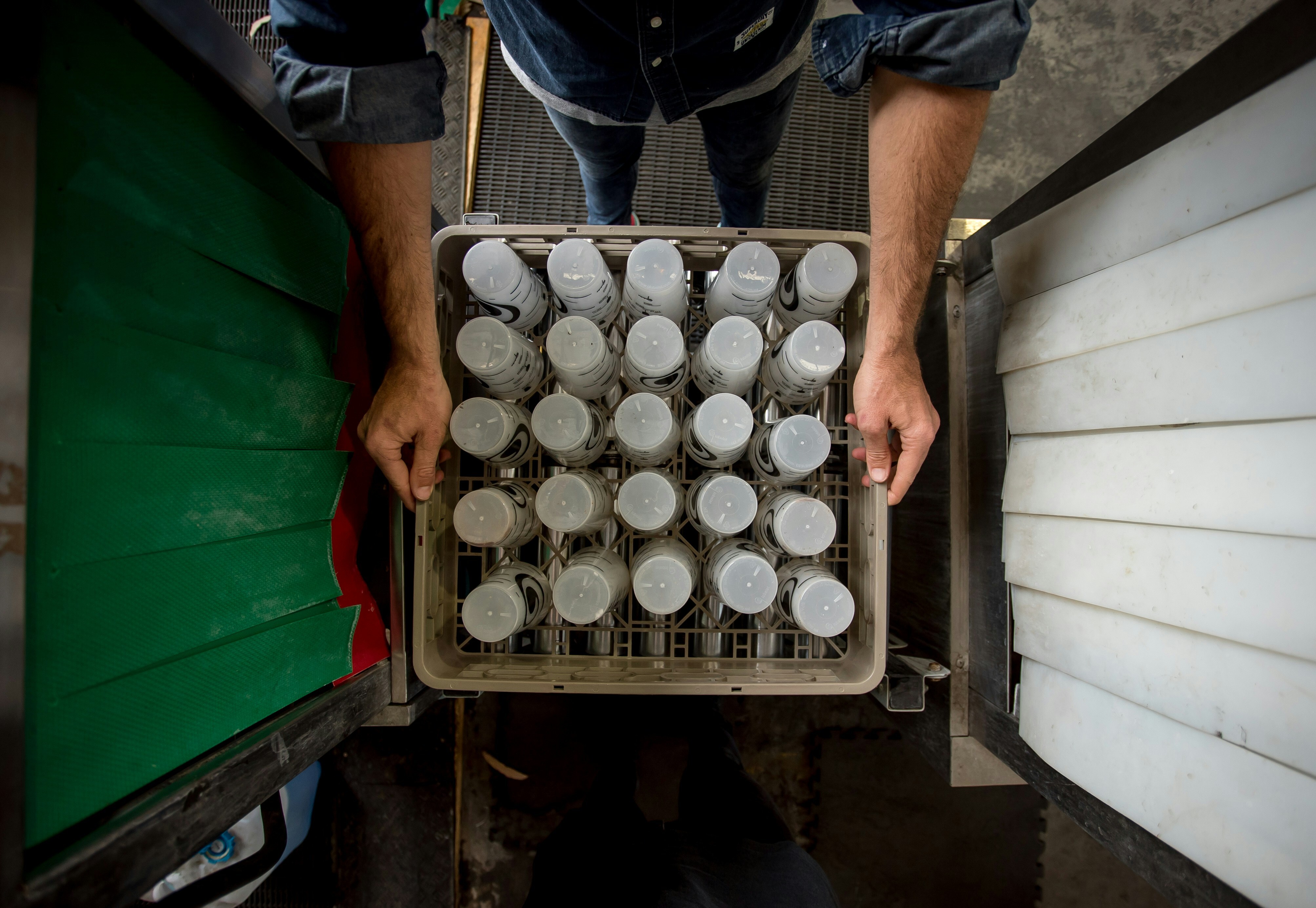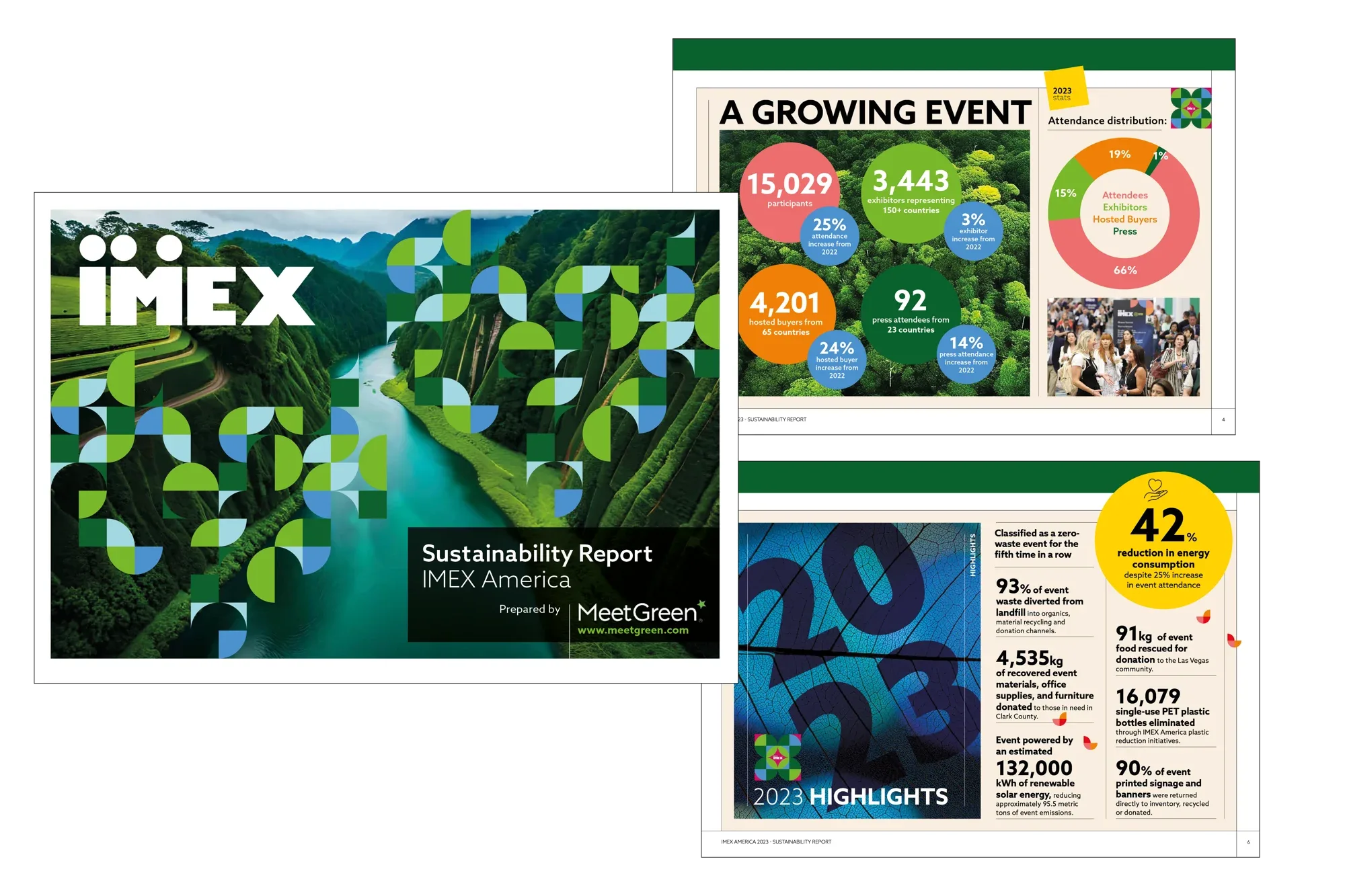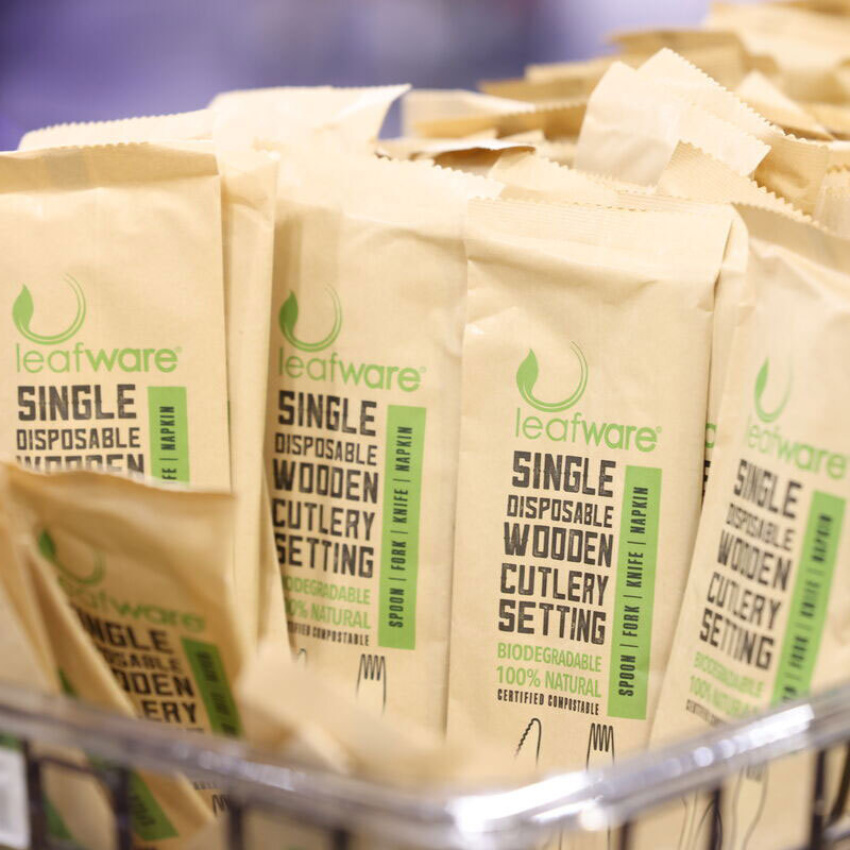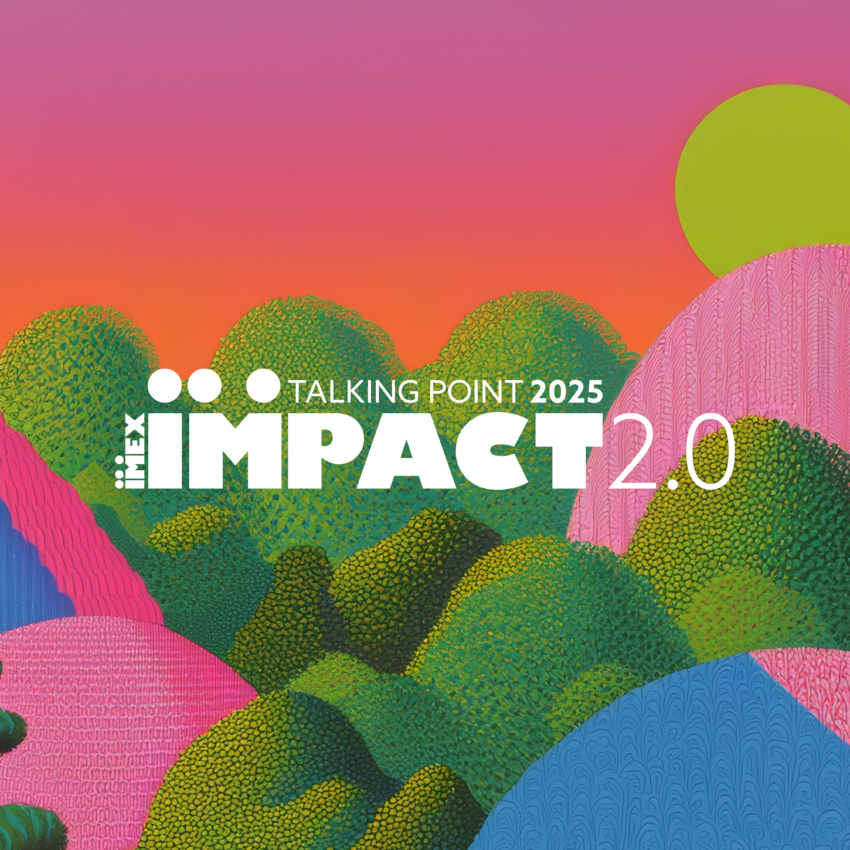Why sustainability in events can’t be ignored
Sustainable events are essential. As event planners, we have a unique opportunity to create eco-friendly events that both inspire our attendees and respect the planet. By embedding sustainability, we can reduce an event's environmental impact and lead the way for greener future events.
The events industry is rising to this challenge. According to the latest American Express Global Meetings & Events Forecast, 78% of respondents say their organizations are planning to have net zero goals by the end of this year. Respondents also indicate that sustainability plays a key role in their choice of event location. With 13% ranking it among their top two most influential factors.
The environmental impact of events and why it matters
The environmental impact of events can’t be ignored. Today’s attendees are increasingly environmentally conscious and value initiatives that minimize environmental harm. From energy consumption to waste production, our industry can leave a hefty carbon footprint. By adopting sustainable event practices, we can both reduce our environmental impact and contribute to a healthier planet.
How to implement sustainability in event planning
Event organizers, if you’re wondering where to start, use our sustainable event planning checklist below:
1. Choose eco-friendly venues:
Choose venues that prioritize sustainability.
Look for venues which:
- Use renewable energy sources
- Have efficient waste management systems
- Promote sustainable practices such as food donation

Venues with LEED certifications, (Leadership in Energy and Environmental Design), B-corporation and ISO 14001 are often a great choice if you want to prioritize sustainability in your event planning.
2. Reduce energy use:
Make sure you, or your venue, use energy-efficient lighting and sound systems. You can also experiment with only using natural light depending on the venue and time of year. Saving energy extends beyond sound, lighting and other tech components. Using only digital invitations can also help save on energy consumption.
3. Minimize waste:
Recycling and composting programs are an effective way to reduce waste at events.
For example, clearly labeling waste and recycling bins can ensure that any event related waste is properly disposed of. You could also offer compostable plates and bowls at buffets or opt for reuseable ceramic.
Meticulous menu planning can help control food waste too. Boost your social responsibility by working closely with your event caterers to produce a robust leftover food donation scheme.
4. Encourage sustainable transportation:
Carpooling, public transportation, or shuttle services for attendees can ensure that travel-related emissions for your events are kept low. You could also consider incentives and rewards for those who use eco-friendly transportation. Such as discounts on attendance or special recognition.
Or simply make greener travel user-friendly and simple. This can include sharing guides on how to use local public transportation or making shuttle buses frequent and easy to find outside your event space.
5. Source local and sustainable products:
Using local and sustainable products can go a long way to making a positive and sustainable impact. When it comes to choosing your vendors, you should prioritize working with those who offer local, organic and sustainably sourced products. This not only supports the local economy but also reduces the carbon footprint that comes with transporting these products.

6. Engage attendees:
Sharing your sustainability initiatives with attendees can improve engagement. You can, for example, display signs highlighting sustainability initiatives. Or share tips on how they can reduce their own environmental impact during the event.
If you’re using water stations instead of plastic bottles of water, make this choice clear throughout the event space. Educate attendees with signs about cutting single-use plastic waste and using reusable water bottles.
Education can start pre-event. You can use your marketing channels or any “Know before you go” emails to share sustainable choices. This could be sharing menus and highlighting sustainable food options. Such as vegetarian or red-meat free choices.
Or sustainable transportation choices such as train routes and shuttle buses. Education and engagement can help your attendees contribute to your event’s sustainability. By encouraging attendees to take part in your sustainability efforts, a positive impact will echo across the event.
Tracking and reporting sustainability impact
After the event, it’s vital that you assess your efforts and their impact. Collect data on your event’s energy use, any waste generated and transportation emissions.
Measurement and reporting can also help to demonstrate your commitment to, and the benefits of, sustainability to your stakeholders as well as your attendees. Sustainability measurement isn’t always as easy as it sounds. And it can be difficult to know where to start. Find out how you can start your carbon measurement journey.
1. Measure carbon footprint and environmental impact:
When you measure your sustainability initiatives, make sure you’re tracking waste levels as well as emissions. Then you can start to identify areas for improvement. Always remember to include the percentage of sustainable materials used in your planning. This includes recycled, plastic free, compostable and reusable materials that you can store for your next event such as signage.
2. Publish sustainability reports:
It’s important to share insights to create awareness and promote any positive outcomes as well as any learnings. You can leverage social media or other marketing channels to share your sustainability efforts and their impact. Use infographics to share the top findings and learnings or a webinar post-event detailing the event’s impact.
3. What we do at IMEX to promote sustainability:
IMEX Frankfurt and IMEX America are both events where we embed sustainability into every aspect of our event planning. Our Sustainability Report for IMEX America 2023 reveals the successes, experiments and learnings from the 2023 show.
We share our successes and our challenges with the wider industry so others can take what we’ve discovered and weave this into their own events.

The future of sustainable event planning
Sustainability in events is no longer just about reducing harmful impact. It’s about leading innovation and positive change. The future of sustainable event planning includes everything from AI-driven sustainability tools, through blockchain for supply chain transparency to carbon offsetting.
Sustainability is all about creating and maintaining a bright future. Not only for the event industry but for our planet. By starting small and scaling up sustainability initiatives you can create environmentally friendly events for years to come.
Whether you start with travel emissions or waste reduction, it's important to just start. Begin with a few key changes. And gradually incorporate more sustainable practices as you gain experience and confidence.





